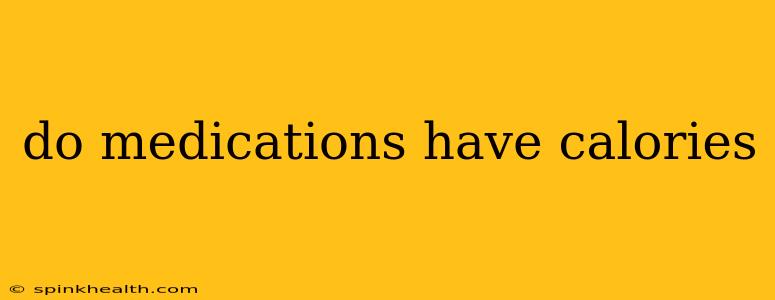Do Medications Have Calories? Unpacking the Nutritional Nuances of Pills and Potions
The question, "Do medications have calories?" seems simple, but the answer isn't always straightforward. The truth is, it depends. Let's dive into the fascinating world of pharmaceutical calories and dispel some common myths.
Imagine this: You’re meticulously tracking your calories, striving for your health goals. Then, you pop a pill. Do you need to adjust your calorie count? The answer, more often than not, is no. But let's explore the exceptions.
Most Medications: Negligible Caloric Content
The vast majority of medications, including tablets, capsules, liquids, and injections, contain a negligible amount of calories. We're talking about amounts so minuscule they are essentially inconsequential in a daily calorie count. The active pharmaceutical ingredients themselves don't provide energy in a way that's measured in calories. The inactive ingredients, or excipients (binders, fillers, etc.), might contribute a tiny fraction of a calorie, but this is far below the detection threshold for most calorie-counting methods.
Liquid Medications: A Slightly Different Story
Things get a little more complex with liquid medications, particularly syrups and suspensions. These often contain sweeteners like sugar or artificial sweeteners, which do have caloric value. However, the amount is typically very small per dose. For example, a teaspoon of a children's cough syrup might contain a few calories, but it’s unlikely to significantly impact your overall daily intake. Always check the nutritional information on the label if you're concerned.
What About Nutritional Supplements?
It's important to distinguish between medications and nutritional supplements. Supplements, like protein shakes or vitamin drinks, often contain significant calories. These calories come from the nutrients and ingredients they include, such as carbohydrates, proteins, and fats. These should be factored into your daily calorie intake.
Do Medications Affect Metabolism or Appetite?
While medications themselves don't directly contain many calories, they can indirectly impact your calorie intake and metabolism. Some medications can increase or decrease your appetite, leading to changes in your caloric consumption. Others may affect your metabolism, influencing how your body burns calories. If you experience significant changes in your appetite or weight while on medication, consult your doctor or a registered dietitian.
How Many Calories Are in Common Medications?
The short answer is: virtually none in most cases. It's not practical to track the minuscule caloric contribution of most medications. Your focus should be on the overall nutritional balance of your diet.
Should I Account for Medication Calories in My Daily Intake?
Unless you're on a highly restrictive diet or consuming large quantities of caloric liquid medications, you don't need to worry about tracking the calories in your medication. Focus on the bigger picture of your overall diet and lifestyle choices.
When to Consult a Professional
If you have concerns about the potential impact of medication on your weight or calorie intake, consult your doctor or a registered dietitian. They can provide personalized advice based on your specific medications and health circumstances. They can also help you address any dietary changes needed to maintain a healthy lifestyle while taking your prescribed medications.
Remember, this information is for general knowledge and shouldn't be considered medical advice. Always consult your healthcare provider before making any changes to your diet or medication regimen.

